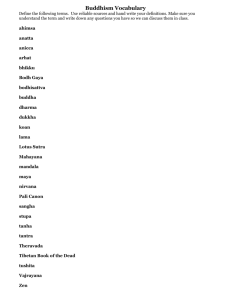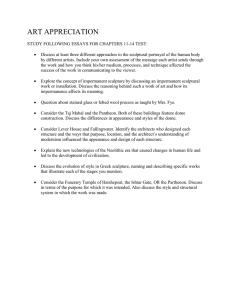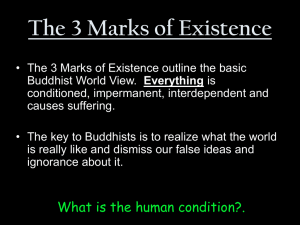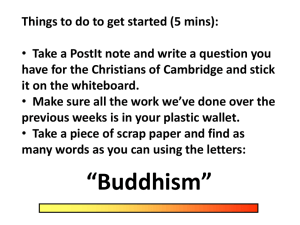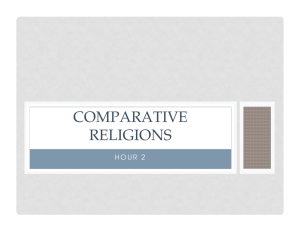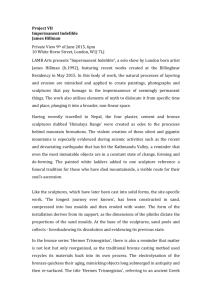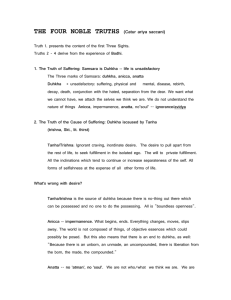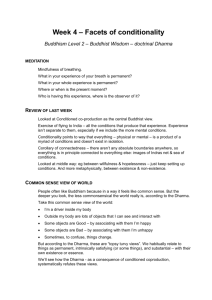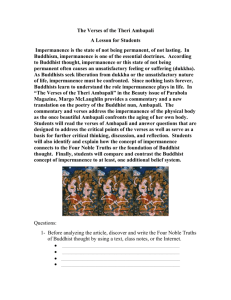File
advertisement
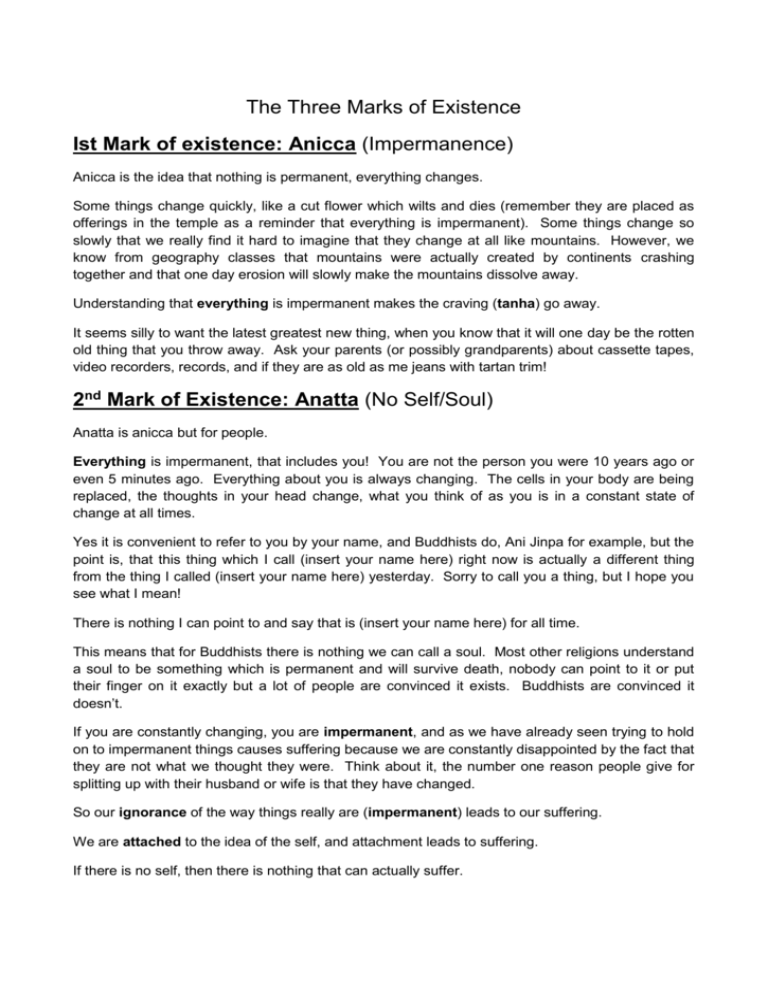
The Three Marks of Existence Ist Mark of existence: Anicca (Impermanence) Anicca is the idea that nothing is permanent, everything changes. Some things change quickly, like a cut flower which wilts and dies (remember they are placed as offerings in the temple as a reminder that everything is impermanent). Some things change so slowly that we really find it hard to imagine that they change at all like mountains. However, we know from geography classes that mountains were actually created by continents crashing together and that one day erosion will slowly make the mountains dissolve away. Understanding that everything is impermanent makes the craving (tanha) go away. It seems silly to want the latest greatest new thing, when you know that it will one day be the rotten old thing that you throw away. Ask your parents (or possibly grandparents) about cassette tapes, video recorders, records, and if they are as old as me jeans with tartan trim! 2nd Mark of Existence: Anatta (No Self/Soul) Anatta is anicca but for people. Everything is impermanent, that includes you! You are not the person you were 10 years ago or even 5 minutes ago. Everything about you is always changing. The cells in your body are being replaced, the thoughts in your head change, what you think of as you is in a constant state of change at all times. Yes it is convenient to refer to you by your name, and Buddhists do, Ani Jinpa for example, but the point is, that this thing which I call (insert your name here) right now is actually a different thing from the thing I called (insert your name here) yesterday. Sorry to call you a thing, but I hope you see what I mean! There is nothing I can point to and say that is (insert your name here) for all time. This means that for Buddhists there is nothing we can call a soul. Most other religions understand a soul to be something which is permanent and will survive death, nobody can point to it or put their finger on it exactly but a lot of people are convinced it exists. Buddhists are convinced it doesn’t. If you are constantly changing, you are impermanent, and as we have already seen trying to hold on to impermanent things causes suffering because we are constantly disappointed by the fact that they are not what we thought they were. Think about it, the number one reason people give for splitting up with their husband or wife is that they have changed. So our ignorance of the way things really are (impermanent) leads to our suffering. We are attached to the idea of the self, and attachment leads to suffering. If there is no self, then there is nothing that can actually suffer. 3rd Mark of Existence:Dukkha (Suffering/Unsatisfactoriness) (also 1st noble truth) You do not need to remember the three terms for the exam! Dukkha-dukkha is suffering in its straightforward form. It consists of pain and directly unpleasant experience generally. We do not need to appeal to impermanence to appreciate the presence of dukkha-dukkha, but it does not usually account for our whole experience because we also experience happiness and pleasure. Viparinama-dukkha is the frustration which arises due to the fact that pleasant experiences are impermanent. When the pleasant experiences end, we continue to want more of them, and thus experience disappointment. This type of dukkha leads to tanha or craving, which continues even when the source of the pleasure does not. (Think smoking) Sankhara-dukkha is the unsatisfactoriness that we experience due to impermanence. Things in samsara are not satisfying because they don’t fulfil our expectations completely. A new computer doesn’t work as we expect, a holiday isn’t quite as fun as the brochure led us to expect, and a person has bad points that we didn’t notice at first. This term can also be applied to a sense of dissatisfaction about our whole lives, sometimes called 'existential dukkha', when life as a whole seems meaningless. Also see 1st Noble Truth.
